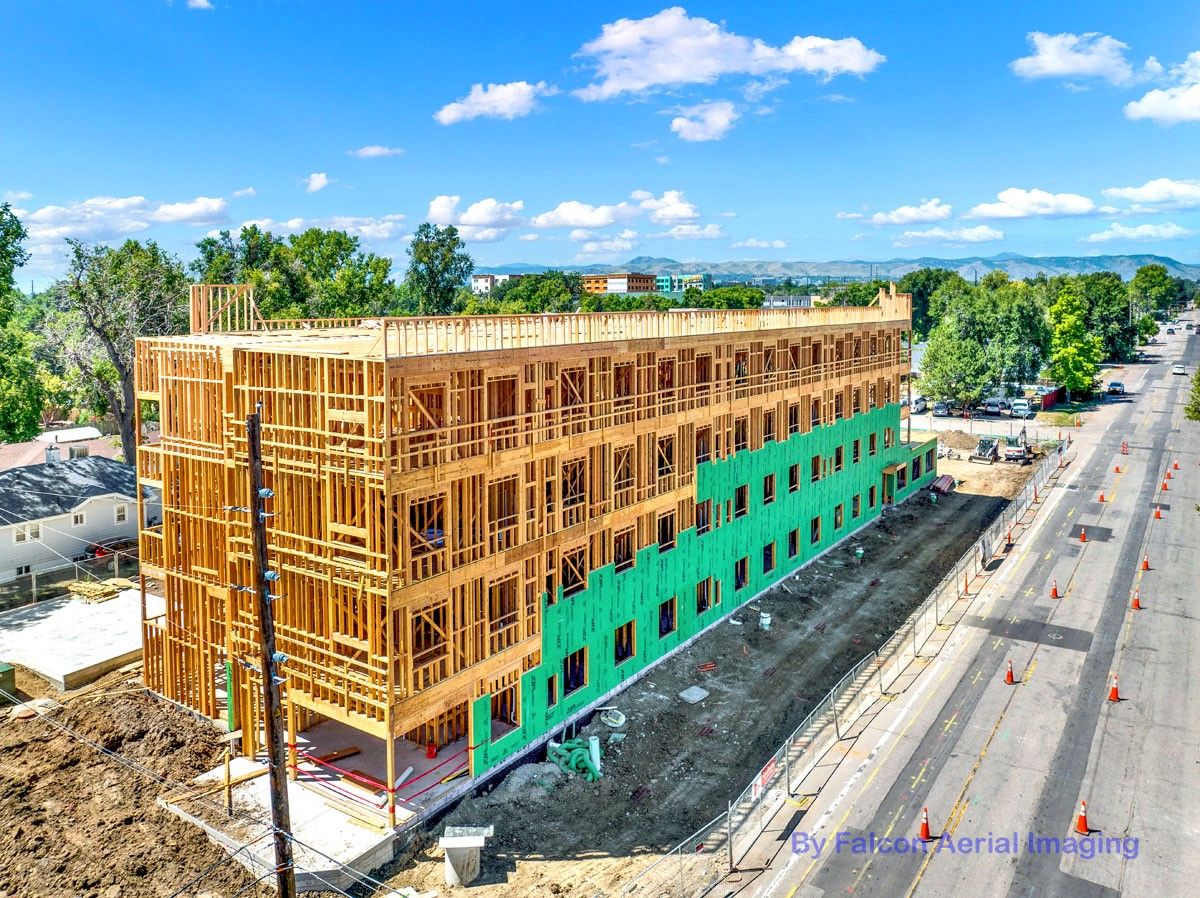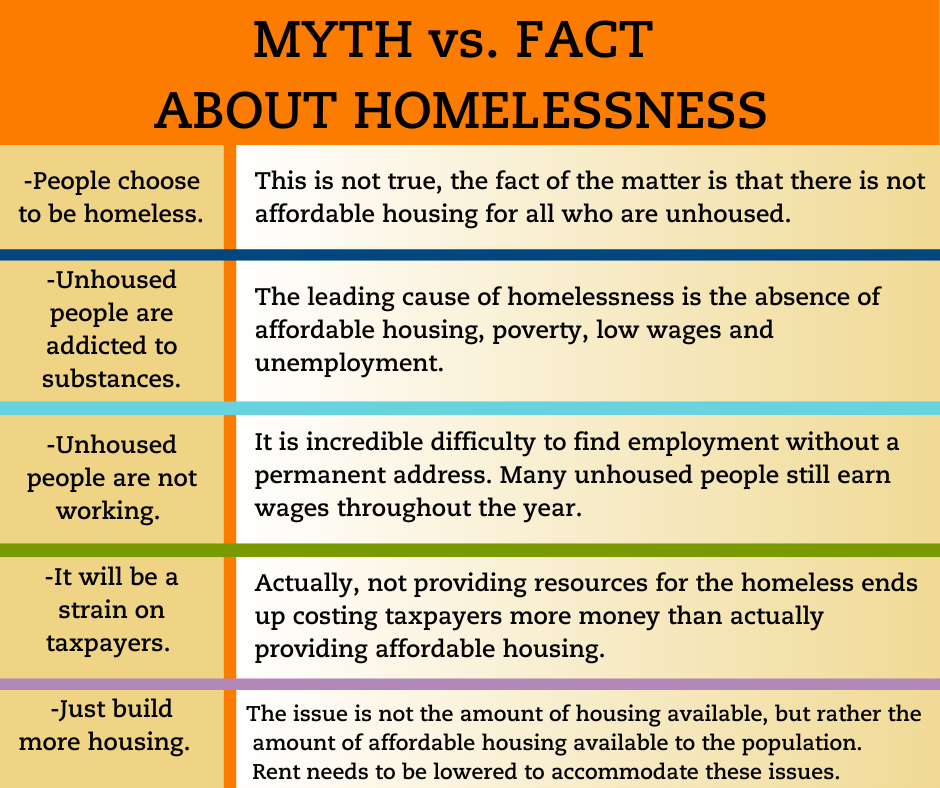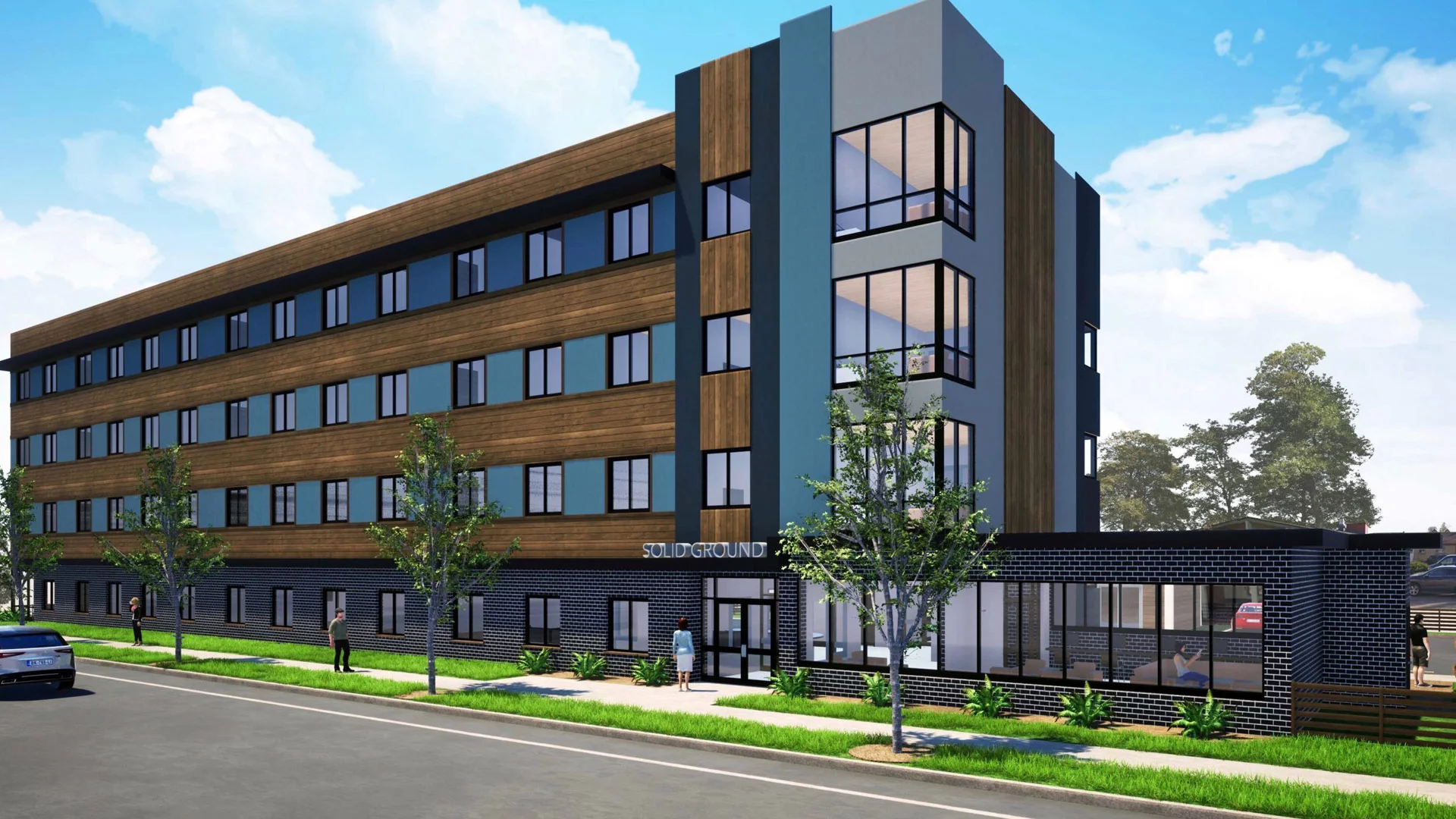Housing is the Key to Recovery

As Autumn changes the leaves and drops the temperatures in Colorado, the need for housing becomes that much more important. At Jefferson Center, our focus goes toward not just responsive mental healthcare, but proactive care as well. Housing plays one of the biggest roles in mental health.
Basic needs such as food, shelter and clothing are things most of us take for granted, yet for someone struggling with homelessness, they are constantly in question. Everyday life becomes a challenge, and for someone with a mental illness or addiction, life can become far more difficult.
Research shows that 71% of people experiencing homelessness have a mental illness or post-traumatic stress, and 59% are struggling with long-term substance use disorders. Other national studies show that supportive housing not only resolves homelessness and increases housing stability, but also improves health and lowers public costs by reducing the use of publicly funded crisis services, including shelters, hospitals, psychiatric centers, jails, and prisons. In permanent supportive housing projects nationally, an average of 85% of people remain housed after one year.

Our own community is in need of housing solutions. In Jefferson County, data shows the unsheltered homeless population jumped 152% in 2023’s count, with 453 people counted living on the streets. Statistics like these may jump out as discouraging at first, but they are important to have for both understanding the current scope of the housing crisis and to secure funding.
We can see how housing plays a role in mental health and how it has become a central focus on a national and local level. So how does Jefferson Center take action to support those experiencing homelessness?
Jefferson Center proudly manages over 420 housing vouchers that range from Housing Choice Vouchers (formerly Section 8) through Permanent Supportive Housing Vouchers. In 2022, Jefferson Center was awarded 15 additional vouchers to further assist our unhoused neighbors who are high utilizers of supportive services.
In partnership with Family Tree and Foothills Regional Housing, we also support efforts being made in Arvada and Wheat Ridge, respectively. Supportive housing units in both areas will combine for another 110 units, and on-site mental health services will be made available as well.
But those housing efforts don’t end there. In the fall of 2021, Jefferson Center was selected to receive federal tax credits that will support a 40-unit, permanent supportive housing property to be built in Jefferson County. This site will be known as the Solid Ground Apartments and will add another 40 site-based housing vouchers. Ground was broken in December 2022, and construction is expected to be finished in Spring 2024.

Supportive housing is a highly effective strategy that combines affordable housing with intensive coordinated services. Through this Housing First approach, people who are most in need will be able to access housing without high barriers placed on them. Once stabilized, they can begin to address issues like mental health, substance use, job training, and more. Through management of different types of housing vouchers combined with more ambitious supportive housing projects like Solid Ground Apartments, Jefferson Center is taking intentional steps to reverse homelessness and further support mental health in our community.
Get involved
If you have questions or would like to be involved in the Solid Ground Apartments project, contact Taylor Clepper at taylorc@jcmh.org. If you would like to donate to Jefferson Center’s housing efforts and beyond, visit our donations page.
- Kiara’s Note – Blog
- Mental Health Matters – Blog
- Voices of Hope – Blog
- Humans of Jefferson Center
- Addiction & Substance Use
- Anxiety
- Child Mental Health
- Crisis and Trauma
- Depression
- Exercise
- Just The Facts
- LGBTQIA+ & Pride
- Medicaid
- Men’s Mental Health
- Parenting
- Recovery
- Senior and Older Adult
- Socializing
- Stigma
- Stress
- Suicide Prevention
- Support & Advocacy
- Teen’s Mental Health
- Treatment Options
- Women’s Mental Health